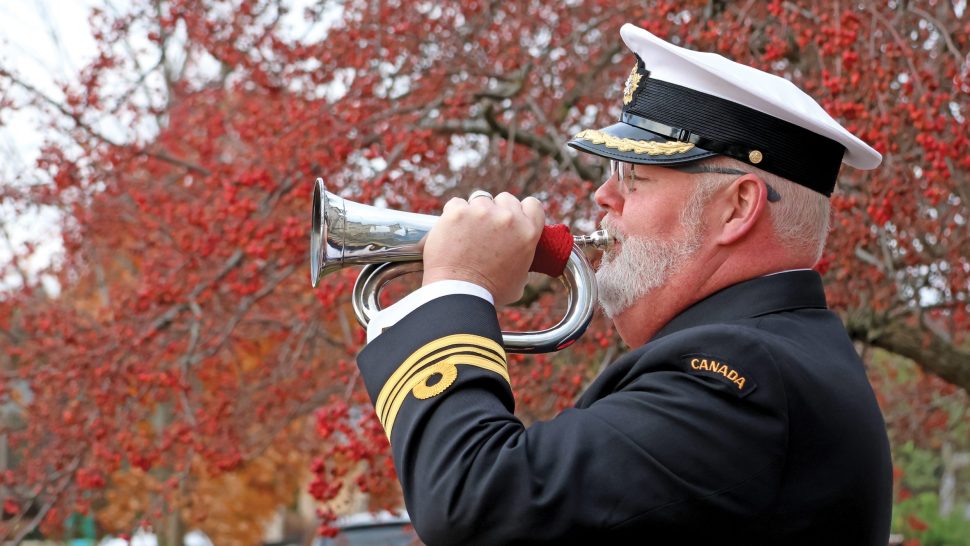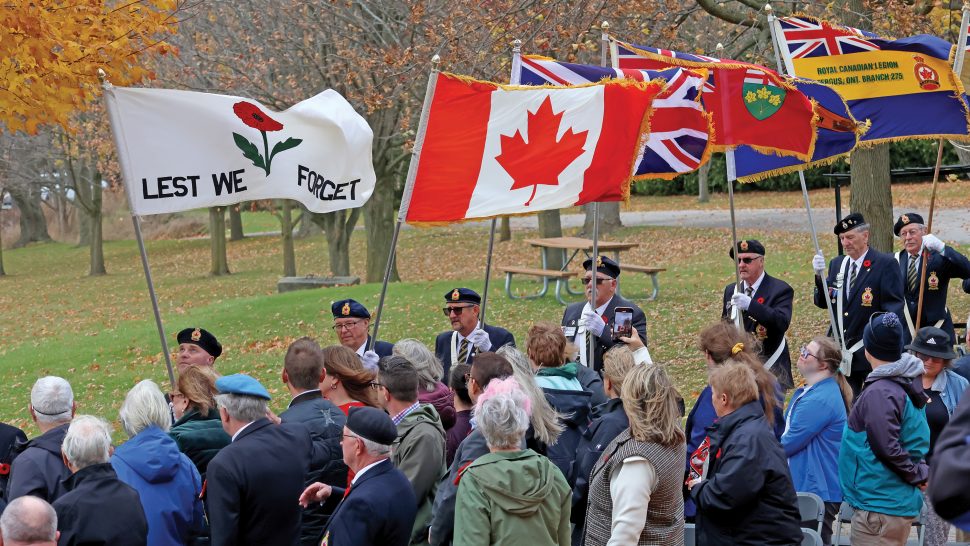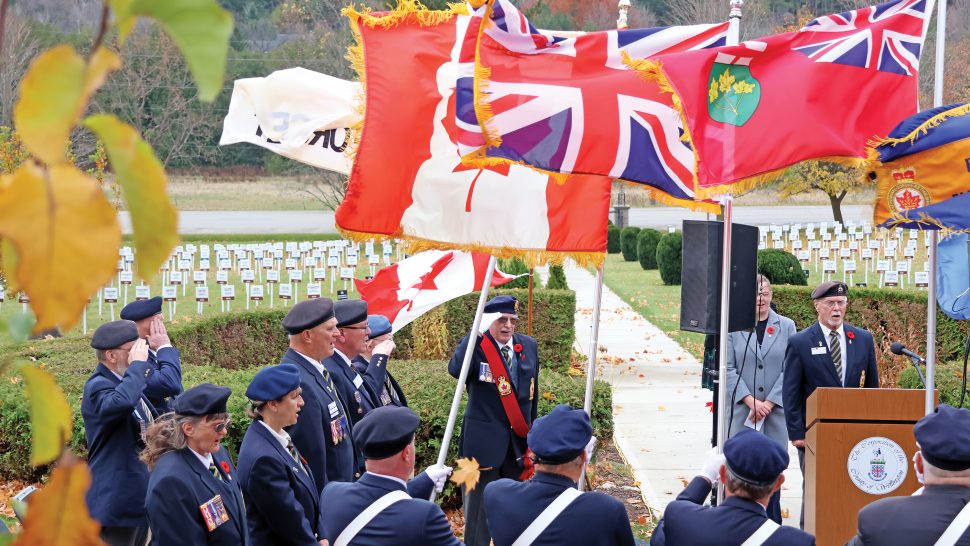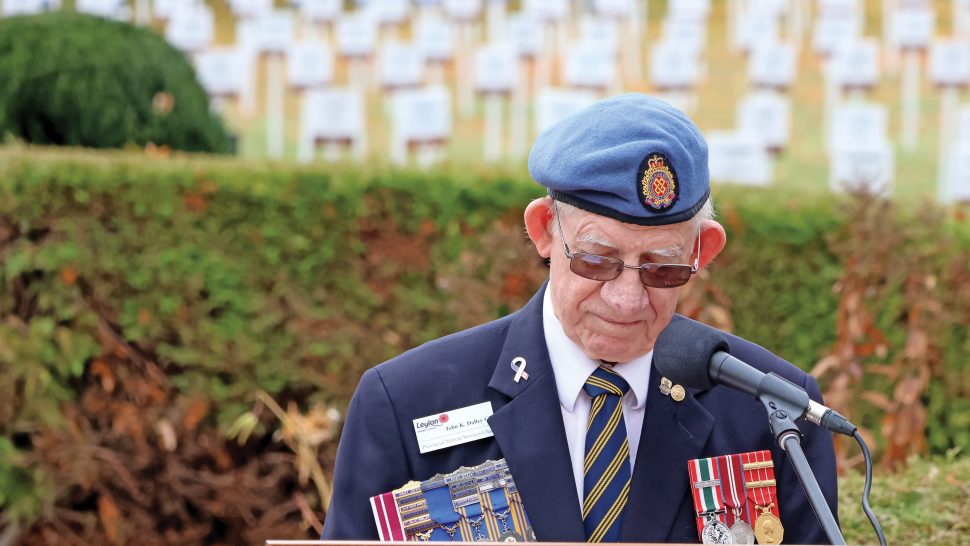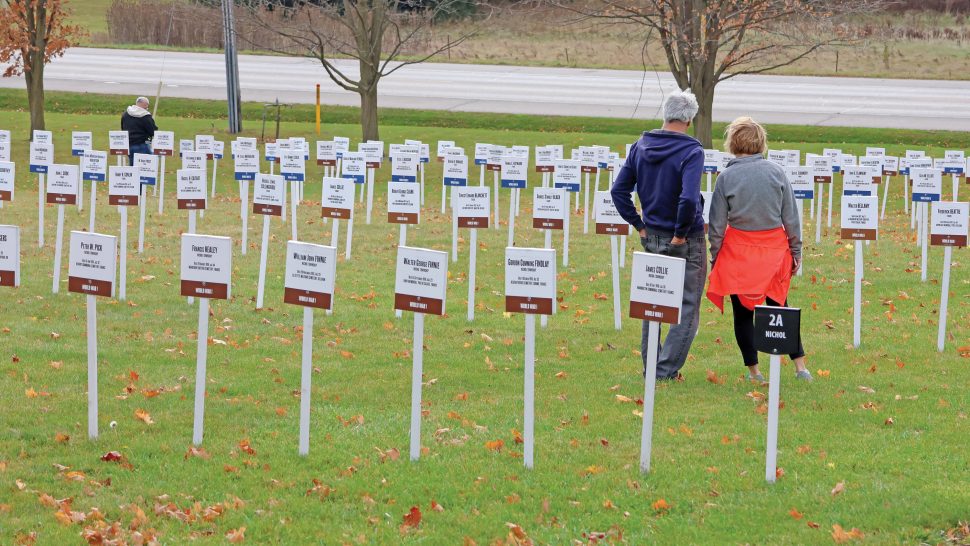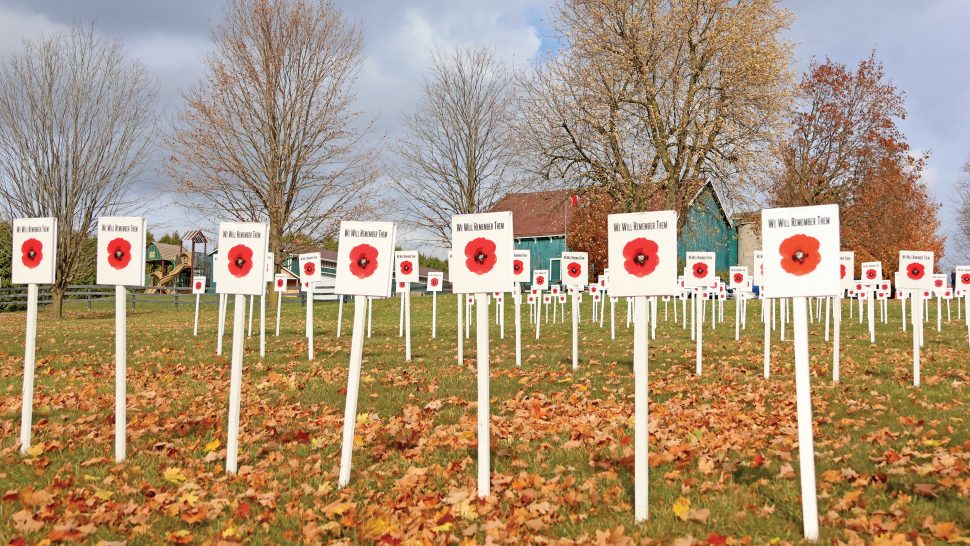ABOYNE – While Remembrance Day has not yet arrived, around 100 people gathered at the Wellington County Museum and Archives on Nov. 5 to pay tribute to individuals from Wellington County who lost their lives in various wars and conflicts.
While all those who have died in wars, from the First World War on, were honoured, the ceremony’s speakers called particular attention to the younger ones.
“This year is especially poignant for me,” said county Warden Andy Lennox, who provided opening remarks.
He told the crowd, which included local politicians, Legion members, county staff and members of the public and media, that his own father had enlisted to fight in the Second World War in 1942 at the age of 17.
“This year, my 17-year-old son went on to university,” Lennox said, drawing the comparison between one young man going off to school and the other going off to war.
“It’s truly remarkable the sacrifice they made on our behalf,” he said, speaking not just of the sacrifices of those who died, but also of the families who said goodbye to those individuals.
Before the names of the county’s war dead were read aloud, Lennox pointed out the markers adorning the museum’s lawn, each featuring a poppy on one side and a name and age on the other.
“They’re a powerful visual reminder of the more than 500 people from Wellington County who gave their lives,” he said, listing the conflicts.
It took roughly half an hour for 10 representatives from each town and township to read just the name of each individual, working in alphabetical order.
Wellington Place administrator Jana Burns then spoke, adding a human touch to the list of names by highlighting the achievements of one of the soldiers from the list.
“Each year, we are encouraged to pay respect to a specific soldier from Wellington County, and this year we are paying respect to Samuel Honey,” Burns said.
Though not as young as 17 when he enlisted, Honey was also a young soldier.
Born in Conn in Arthur Township in 1894, Honey attended public school in Drayton and was just 16 when he began teaching at a one-room Six Nations school near Brantford, Burns said.
Despite his youth, he earned a spot at teacher’s college in London and even received a scholarship.
He was 21 in 1915 when he enlisted as a private, going overseas in October with the rank of sergeant.
After both training and serving as an instructor with the Aldershot Royal Army Physical Training Corps, he went to France in 1916 to fight with the 78th Battalion, said Burns.
Just five months later, in January 2017, he was awarded the Military Medal for his actions during a pair of raids on German trenches.
Burns quoted a letter Honey had written to his parents afterwards, saying, “What I did didn’t amount to much, but our party was lucky. The biggest part of my job was leading the party across and it really isn’t as easy as it sounds.”
“How honest and modest, this remarkable young man from Conn,” Burns said.
She went on to describe how Honey also received the Distinguished Conduct Medal later that same year at Vimy Ridge, after he assumed command when his platoon commander was wounded.
From there, he returned to England to attend an officers’ training school, before returning to France.
He fought in the battle of Bourlon Wood, just below the Belgian border, where his company’s commander and all other officers were either killed or wounded. He took command again and continued the advance, Burns said.
In one night, he charged a German machine-gun post, capturing the guns and taking 10 prisoners, before fighting off successive counter attacks.
He then led an attack on a German outpost, capturing it and seizing three machine guns, said Burns.
Unfortunately, two days later, while leading his company against another enemy stronghold, he was severely wounded and taken to hospital.
He died of his injuries on Sept. 30, 1917, she said. He was just 24.
For his efforts, he was awarded the Victoria Cross.
“In reading his military history, it was incredible how unique the accomplishments of this individual from Wellington County truly are,” said Burns.
She went on to talk about freedom, saying it “isn’t simply the absence of oppression.”
“We are so fortunate to live in Canada,” Burns said, highlighting our liberal democracy, laws that protect us, and relative prosperity as a nation.
“We owe it to everybody and especially those who fought to create our present circumstances, namely those behind us,” she said, referencing the markers on the lawn, “to remain optimistic as to our world’s future.
“Let us place a greater emphasis on our individual responsibility to improve the lives around us,” Burns said.
“Let us communicate with greater care and consideration – as neighbours, as strangers online and as members of this amazing community. May we never take our beautiful democracy for granted.”



